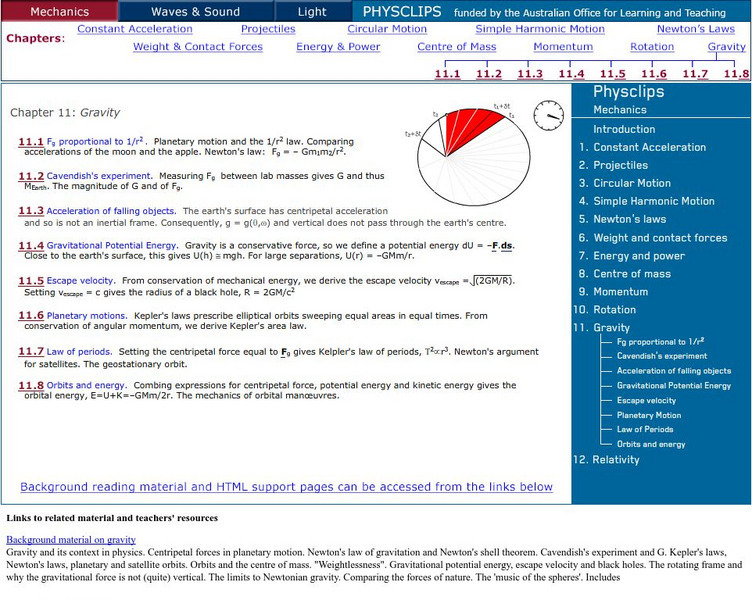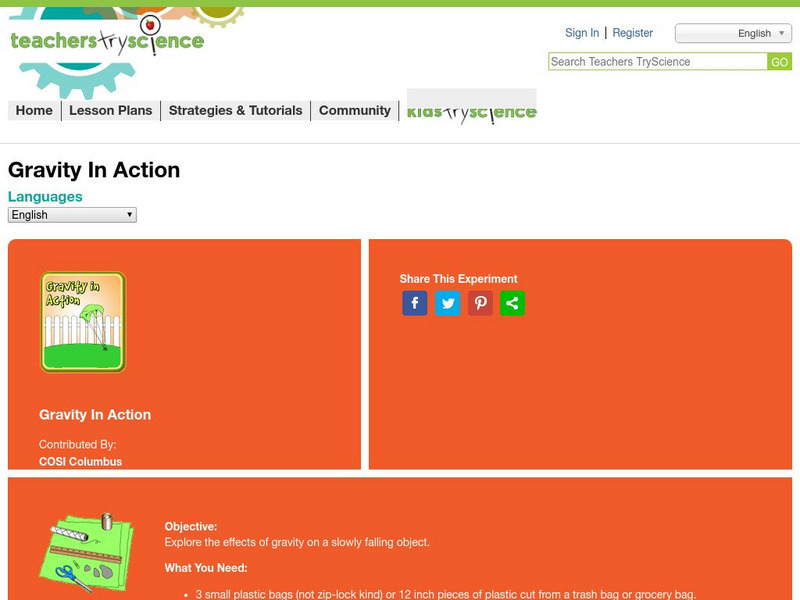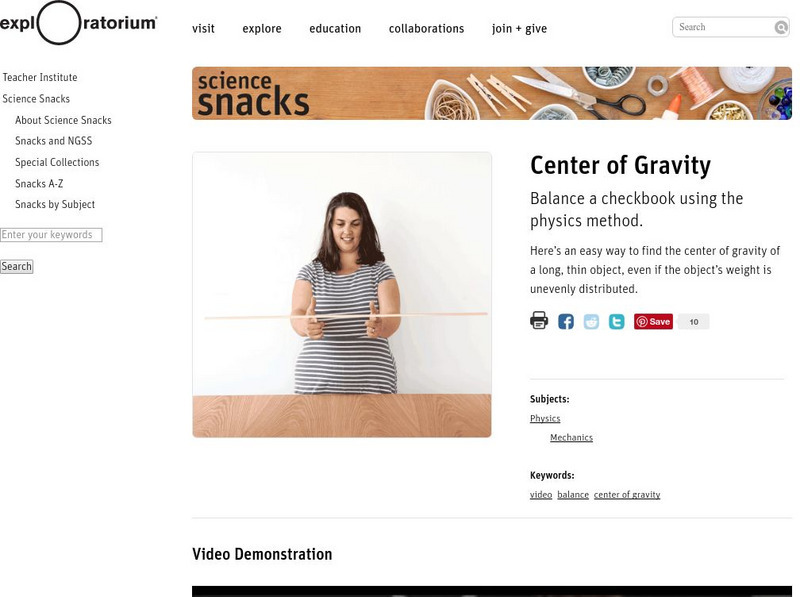Curated OER
Virial Theorem Lesson
Ninth graders describe how equilibrium can occur as the balance of two effects. They model the stability of elliptical galaxies based on how fast stars within the galaxy are moving.
Curated OER
Parachutes And Parafoils
Learners study deceleration devices like parachutes and parafoils.
Curated OER
Parabolas Exist Where?
Young scholars recognize how parabolas are used in architecture and calculate a constant of variation.
Curated OER
Our Universe: Always Moving, Always Changing
Students explore the main concepts of astronomy through the eleven lessons of this unit. The past, present, and future methods of studying the science are examined in this unit.
Curated OER
Couch Potato or Inertia Victim?
Sixth graders how primary research is carried out. They design a simple survey questionnaire to interview people about their week average television watching time. They analyze the results and write a report based on the information.
Curated OER
Taking Risks: Drug and Alcohol Abuse
Students discuss a video about drug and alcohol abuse and their connection to risk-taking. They answer questions on a risk factor sheet about the use of tobacco, drugs, and alcohol. They discuss long and short term goals and how not...
Curated OER
Satellites
Eighth graders explore the history of space travel and satellites. Through a teacher demonstration, 8th graders observe how a satellite revolves another object. They identify natural and artificial satellites, explore how satellites...
Curated OER
Clay Boats
Seventh graders are given the opportunity to use model-building as a way to help comprehend the forces and phenomena at work in the world around them. They use both successful and unsuccessful models to make inferences, refine...
Curated OER
Prepositions and Prepositional Phrases
In these prepositional phrases worksheets, students review the definitions and examples for prepositional phrases, prepositions, and object of prepositions. Students then complete three pages of activities for prepositions.
Curated OER
Newton's Third Law of Motion
Seventh graders are introduced to Newton's Third Law of Motion. In this physics activity students examine the concept of thrust as one of the forces acting on aircraft.
Curated OER
Look Mom, No Wings!
Pupils explain how drag, weight, lift and thrust work together to make something fly. In this physics lesson, students measure their jump height and record data on the table. They reason out why they can't remain airborne for long.
Vision Learning
Visionlearning: Mechanics: Gravity: Newtonian Relationships
Explanation of how astronomers and scientist developed the current theories of gravity.
Other
Federal Aviation Administration: Anti Gravity Marble [Pdf]
This experiment examines Newton's Second Law of Motion. Learn how centrifugal and centripetal force help to keep a marble in a can when turned upside down.
NOAA
Noaa: Free Fall Determination of Newtonian Constant of Gravity
Descriptions of an experiment performed by geologists to determine the Newtonian constant of gravity, or "G". Highly sophisticated reading.
PBS
Pbs Learning Media: Galileo: His Experiments
This interactive activity from the NOVA Web site samples Galileo's experiments with falling objects, projectiles, inclined planes, and pendulums.
University of New South Wales (Australia)
University of New South Wales: School of Physics: Physclips: Gravity
Physiclips thoroughly presents the concepts of gravity with animations and film clips.
Vision Learning
Visionlearning: An Experiment: Acceleration During Free Fall
Animated simulation re-enacts Galileo's experiment of dropping objects off the Leaning Tower of Pisa.
TED Talks
Ted: Ted Ed: Gravity and the Human Body
Our bodies function necessarily under the presence of gravity; how blood pumps, a sense of balance and bone growth are all due to life in a world where gravity is an inescapable reality. Armed with experiments from neuroscientists David...
Teachers TryScience
Teachers Try Science: Gravity in Action
Here is a hands-on experiment that lets you discover how and why gravity works by making your own little parachutes.
Exploratorium
Exploratorium: Science Snacks: Center of Gravity
This activity demonstrates an easy way to find the center of gravity of an object.
Science Buddies
Science Buddies: Balancing Act: Finding Your Center of Gravity
Like to have the balance of a tightrope walker? Try the more close - to - the - ground balancing test in this easy experiment to learn a few trade secrets of the high wire experts. In this project, you'll find your center of gravity and...
TeachEngineering
Teach Engineering: Riding the Gravity Wave
Students write a biographical sketch of an artist or athlete who lives on the edge, riding the gravity wave, to better understand how these artists and athletes work with gravity and manage risk. Note: The literacy activities for the...
Science Buddies
Science Buddies: How Do Roots Grow When the Direction of Gravity Changes?
To start this experiment, you should bring all of your materials together on a flat work surface. The surface might get a little wet, so have some paper towels handy.
Exploratorium
Exploratorium: Science Snacks: Anti Gravity Mirror
Using the property of reflection, this activity will have students appearing to defy gravity.





















